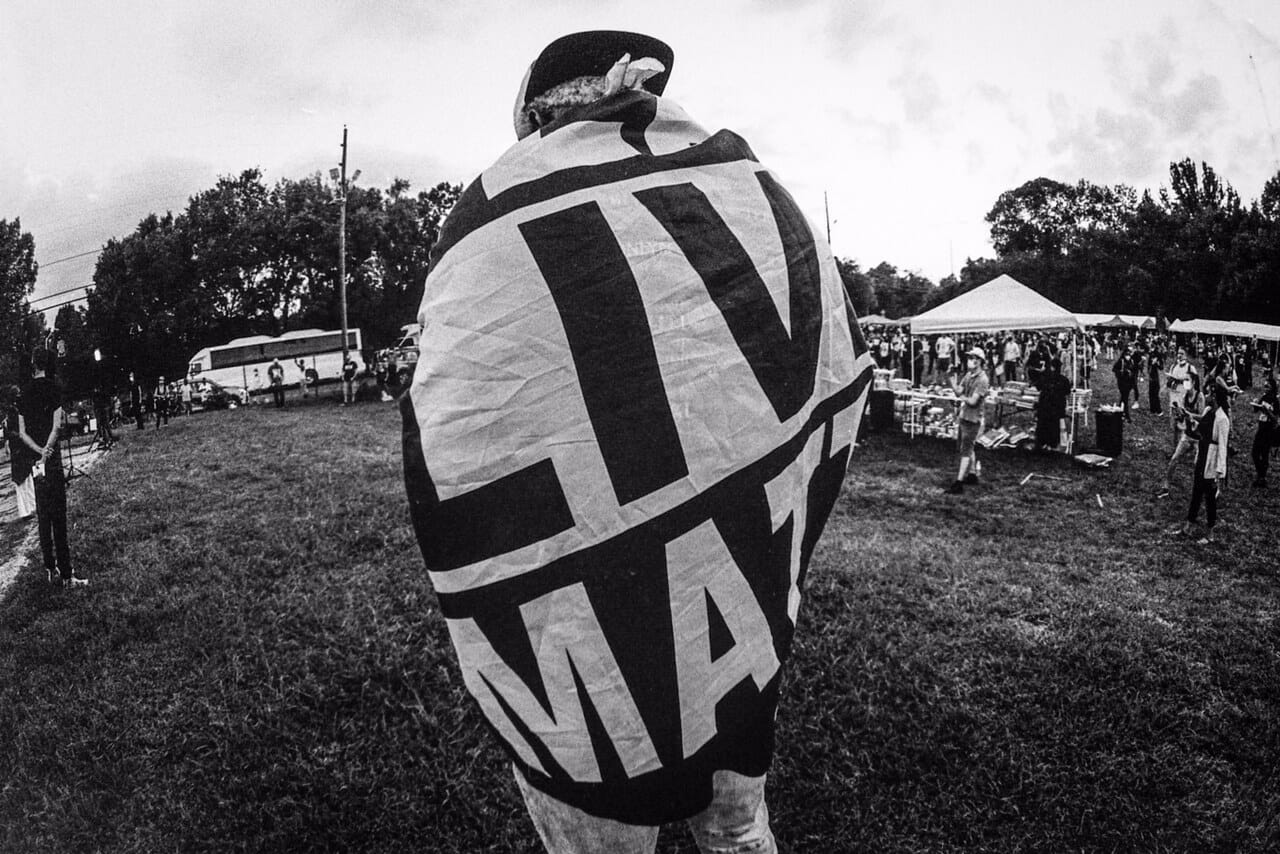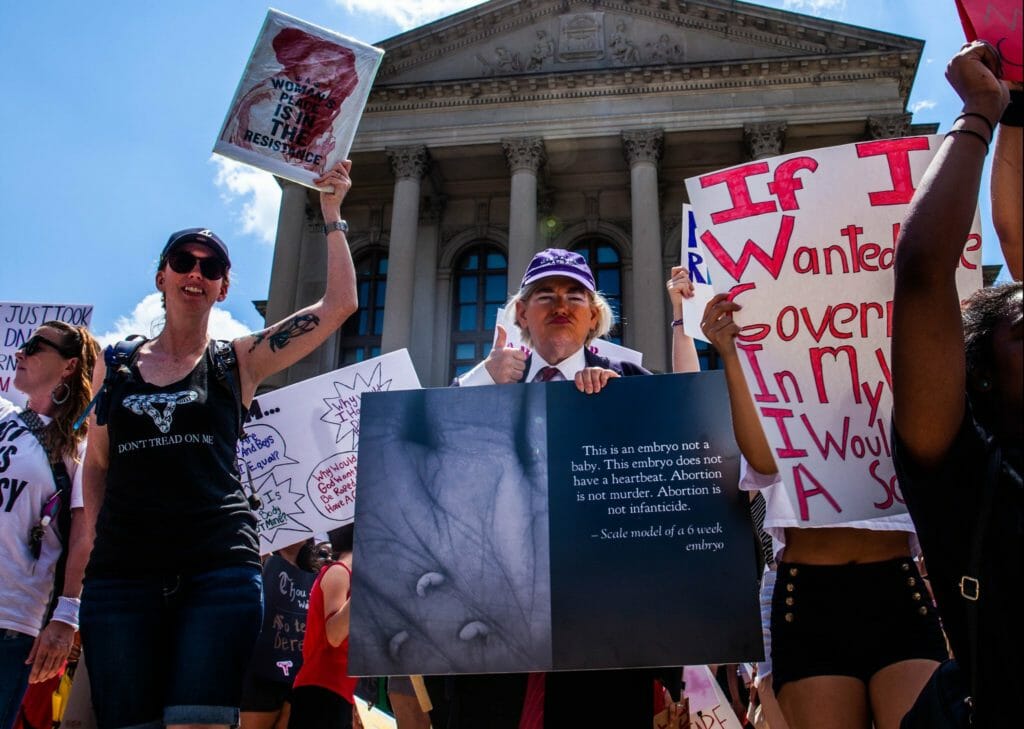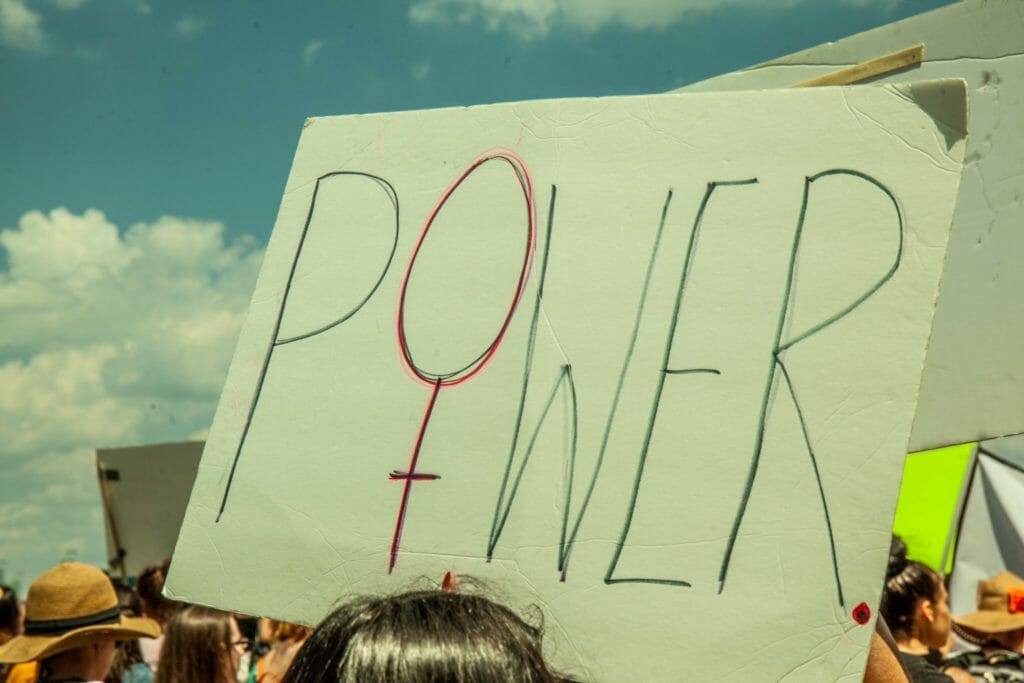A number of City Council members prove themselves to be outdated as meaningful police reform in the breeding ground of the historic civil rights movement still feels out of reach

ATLANTA — We’ve been following Atlanta City Council pretty closely for the past few months since the George Floyd uprisings began in the city on May 29. Overall, what we’ve witnessed is an array of disappointment with only glimpses of progress in regards to police reform and accountability.
In short, the Rayshard Brooks Bill was tanked, 8 Can’t Wait legislation was vetoed and washed away, an ordinance to create police accountability systems with the District’s Attorney office was watered down and substituted, and the Atlanta Police Department received all of its original funding as slated prior to the pandemic and the resurgence of the Black Lives Matter movement. It should be noted that this budget included a $14M increase and that the APD officers received an additional $500 bonus shortly after District Attorney Paul Howard brought forth charges against now ex-officers Garrett Rolfe and Devin Brosnan involved in the June 12 killing of Rayshard Brooks. The vetoing of 8 Can’t Wait legislation was particularly frustrating to city residents, with a sentiment that our current external systems can’t seem to even get on board with the most watered down reforms.
City Council will reconvene virtually tomorrow at 2 p.m. for its Public Safety & Legal Administration Committee Meeting and has released its full agenda. The things on our shortlist to pay attention to are:
- Ordinance 20-O-1509, which is to amend a FY21 grant fund budget to benefit the police department with $20,800 in funds provided by the Department of Justice;
- Ordinance 20-O-1329, by Councilmember Michael Julian Bond authorizing the city’s chief financial officer to create a “code enforcement trust fund account … for the purpose of recovering costs from and providing funding for demolition, clean and close blight remediation; and for other purposes”;
- Ordinance 20-O-1459 by Bond to amend the code of ordinance in city law “to decriminalize victimless minor offenses”;
- Ordinance 20-O-1486, the substitute ordinance originally introduced by Councilmember Antonio Brown to create systems of accountability between the APD and Fulton County District Attorney’s Office; what was included in the bill as requirements are now “requests”;
- Ordinance 20-O-1450 which prohibits militarized and violent tactics on behalf of APD to disperse protesters;
- and Resolution 20-R-4178 urging the Georgia General Assembly to ban no-knock warrants.
Since the City Council has more than demonstrated its patterns, we at this publication expect more of the same in tomorrow’s public session.
Currently, the surges in protest, unrest, and civic engagement don’t ultimately appear to have equated to much in terms of tangible results. As it stands today, Atlanta residents are still in a position where they have to depend on the APD to voluntarily do the right thing instead of them being legally obligated to do it.
While there have been significant losses, it is no means for defeat and the work in the Black Lives Matter movement is not over. On a more positive note, as far as the city budget goes, $18M was pulled from the Atlanta City Detention Center and the Mayor’s Office announced those funds would be reallocated to social programs. The question remains if Mayor Keisha Lance Bottoms will actually follow through, considering she had been promising to close down the jail since 2018 and signed legislation to close it in 2019. These previous promises are what made the originally proposed $18M a bit disturbing.
Our ongoing coverage and presence in city council meetings has given us a close-up view of some of the council’s inner workings along with certain members’ attitudes, yielding us to a much bigger problem. It becomes increasingly apparent that the detachment and disconnect between council members and their communities is quite vast. While we’re all operating in 2020 OS X systems, it seems that City Council is running on Windows 95.
It appears that more than half of the council don’t seem to fully understand what defunding the police means, despite countless callers offering well-thought out messages and there being countless resources explaining the concept. This means they either still don’t get it or they do get it, and choose to vote against policies supporting it, anyway. Based on how they’ve voted in recent months, council members Amir Farokhi, Jennifer Ide, Matt Westmoreland, Andre Dickens, Antonio Brown, and Natalyn Archibong all seem to have a handle on it, but they are outnumbered. This poses a major issue for any chances of actual change, and it seems no amount of public pressure is going to get them to budge as a majority.
[Further reading: “What exactly does it mean to defund the police?” Source: The Cut.]
Leading up to the city’s FY21 budget passing, which is constitutionally required each year to be completed by June 30, a great number of Atlanta residents called in to the City Council’s public comment line demanding city council move funds from the APD and reallocate them to community programs that are clearly in greater need. Further investigation by Mainline contributor Christopher Luke revealed that the APD’s budget features immense bloats in overtime and personnel expenses, among other things. On June 16, City Council members received over 600 phone calls to “defund police” with pleas to reinvest funds into under-resourced communities. These call campaigns spanned across the month, totaling to days’ worth of impassioned phone calls from Atlanta city residents to their council representatives.
Later in the month and throughout July, the public comment line became infused with “blue lives matter” and “back the badge” types of callers; many calls came from people who don’t live in Atlanta and many from Buckhead districts. While their energy matched those of the callers who dialed in to defund police, they did not appear to be the majority of callers from our vantage point. To clarify, we typically have multiple sets of eyes and ears present during the virtual City Council meetings.
Last Monday, with public comments adding up to one hour and 46 minutes, a much smaller number of callers — mostly residing in Buckhead — called to complain about street racing with some threatening to move themselves and their money out of the city. Those who weren’t calling in to complain about street racing called to echo support for accepting the John Lewis statue as well as the Peace Museum Complex at Rodney Cook Sr. Park.
One of the results of that meeting was the passing of Ordinance 20-O-1361, which set penalties for “non-driver participation and reckless driving exhibitions.” In the new ordinance, if convicted, violators could “face a minimum fine of $1,000, spend up to six months in jail, have their vehicle impounded, or any combination of those.”
From outside looking in, it is impossible to dismiss the difference between how the council responded to a mountainous amount of calls to defund police and a molehill of calls to address street racing. Street racing is not necessarily a new problem in Atlanta, but it is one that has become amplified during the pandemic — not dissimilar to the issues relating to police brutality, system racism, and inadequate health care systems. City Council was able to immediately swoop into action and put a law on the books in the interest of “tax payers [who] can’t sleep at night” and apparently wealthier constituents. Councilmember Carla Smith, who stated on Monday that she is a stickler for rules and the law, did not seem to care when others in council, including the legal department, informed her that impounding a person’s car for 30 days is not legal under state law. She exuded obvious frustration, saying she wanted the ordinance to “have teeth.” Compare this response to that towards the mayor’s veto of 8 Can’t Wait legislation and how council regularly strips any police reform legislation of its “teeth,” i.e. the Rayshard Brooks Bill and Ordinance 20-O-1486. In regards to impounding cars, the legislation was written to say “as the law permits,” and it passed.
On the note of public safety, to enact this type of law during a global pandemic when jail conditions remain exceedingly deplorable and unsafe is rather alarming and disconcerting. This action alone makes it seem as if COVID-19 is the furthest thing from some council members’ minds. To my and other colleagues’ recollections, there was no conversation in regards to how this might affect those already disproportionately affected by the novel coronavirus at all. While one council member said “no one will actually spend time in jail,” it is difficult to believe as we witnessed APD arrest people for violating curfew back in June, regardless of whether or not they were involved in the protests. Moreover, an APD recruit was actually arrested shortly after this ordinance was passed.
So we know that City Council can get things done if they want to. What arises now is an issue of prioritization and what city council members deem to be the most important issues in the communities they serve. While citizens called in demanding policies to protect Black lives garnered little or no emotive response from a majority of council members, Council quickly responded to the street racing demands. While some of those calls held genuine concern for public safety, they were drowned out by greater annoyance of noise and threats to move money out of the city. Meanwhile, Ordinance 20-O-1450, which seeks the “cessation of the use of military-style vehicles and the use of rubber bullets and stun grenades to disperse demonstrators; and for other purposes,” has been trying to make its way through council for almost a month and has been amended and substituted from its original version.
According to one of my sources in the City Council, there was an ordinance already tabled to be reviewed regarding the street racing incidents, so the action wasn’t as quick as it seemed. Nonetheless, the optics surrounding this situation are rather jarring. It appears that Council remains deadlocked when it comes to police reform and their actions show they serve some constituents over others. (Note: lip service and empty gestures do not count.) Certain members on council and their respective ideologies simply seem to be outdated.
We’ve seen numerous hints of this, such as when Councilmember Cleta Winslow referred to the deluge of callers in support of defunding the police as “these people on the internet,” adding that they are a “small portion” of the voting pool. Last week, Winslow randomly went on a tangent about what it was like in Pittsburgh during the 1990s, saying she “didn’t want the public to think the APD is running amok with bad police officers,” after numerous citizens had seen videos of an APD officer killing Brooks and saw APD officers brutalizing college students Messiah Young and Taniyah Pilgrim on live television. Additionally, a good number of those callers had witnessed APD officers deploying tear gas (a chemical weapon banned by the Geneva Convention) and firing rubber bullets at peaceful protesters.
Councilmember Howard Shook showed immense frustration the night the Rayshard Brooks Bill was filed (read: killed), complaining that they were in session so late around 10 p.m., letting out random outbursts reminiscent of a 13-year-old boy ready to go home. Last Monday, when the council was discussing a new resolution that was introduced based on Mayor Bottoms’ recommendations on the police’s use of force, Shook was the only member to vote “no.” He stated a concern that there was already a legislation paper that was “well-written and didn’t go anywhere” and added that cops and constituents feel beleaguered “every time city council talks about this.”
What about those beleaguered by racist and trigger happy police, which the APD is not exempt from? Not to mention the other areas the city needs reform, including affordable housing, public transportation, wealth equality, racial equity, health care access, and mental health resources, to name a few?
Councilmember J.P. Matzigkeit proposed a new ordinance that severely narrowed the window of time the public can call in to leave messages on the public line. The policy was swiftly voted in and enacted on Aug. 2, and limits public line calls to 4 p.m. to 7 p.m. the day before the council or committee meeting in question. Prior to this policy, residents could call in up to one hour before the session. This is extremely bad policy that acts in the spirit of disenfranchisement, creating another barrier and restriction to civic engagement for many citizens. This sentiment is lost on Archibong, who stated she was offended by any remarks that this policy was a form of disenfranchisement.
Councilmember Joyce Sheperd presented a lot of pushback when reviewing the ordinance to establish new systems between the DA and the APD, immediately making substitutions to the bill that originally had significant depth and weight, as well as throughout the turbulence of the Rayshard Brooks Bill. We’ve personally received word from readers who live in her district expressing they do not feel Shepherd accurately represents or serves them.
A few weeks ago, we received screenshots from one of our readers in which a community member posted in a Vinings neighborhood Facebook page complaining about the water boys cussing “profusely” when she didn’t buy a water bottle from them, saying she was “over it” and “not okay with the language [or] mess they create.” She proceeded to tag Council President Felicia Moore, who replied “you have to call 911” if you have issues. Another community member stepped in saying no one should call the police until absolutely necessary and proceeded to go talk to the young men in question. The situation appeared to be resolved without the police’s involvement. In a time when we’re becoming aware of how far a 911 call can go (case in point: Rayshard Brooks and countless others), our community should be encouraged to check their own sense of security and fragility when they discern when the appropriate time to call the police is. Someone cursing at you on an intersection is not it and the police shouldn’t be called over something so miniscule. Let’s not all forget the lessons learned from Amy Cooper, Christian Cooper, and the Central Park birdwalking incident earlier this year.
As the city has proceeds to address the issues concerning the water boys, Councilmember Dustin Hillis is currently spearheading further legislation to “crack down” on Atlanta street racing.
As I write this today, there have been four officer-involved shootings in Georgia in the last 24 hours. From where I sit, no meaningful progress has been made in response to the Black Lives Matter movement outside of voting to approve the John Lewis memorial statue and Black Lives Matter murals. However, one can’t help but ask: is that progress or simply placating?
What is it going to take for council and the mayor’s office to hold the same type of urgency for police reform and accountability they appear to hold for incidents involving the water boys and street racing? Additionally, the fact that these issues are the growing concern among Atlanta residents while COVID-19 numbers are rapidly increasing — with no real safety nets in place to prevent mass evictions (the recent halting of evictions doesn’t apply to everyone and doesn’t prevent actual eviction), protect small business owners and employees, protect health care workers, etc., — is especially unnerving. While schools in Georgia reopen and a majority of people try to stay “business as usual,” we can likely expect a doubling back of cases as we near flu season, potentially loading us up for catastrophe. And the truth is, the city of Atlanta and the state of Georgia are especially not prepared.
When all roads have led us to a dead end with current council — even with extreme amounts of civic engagement and unrest, unending police violence demonstrated across the country, and a global pandemic ripping away more and more lives in our communities everyday — the People are left with no other choice than to replace certain members who have become “outdated” with those who possess the willingness to lead and stand up for their communities.
Atlanta City Council seats are up in 2021. It’s time to update and upgrade.




